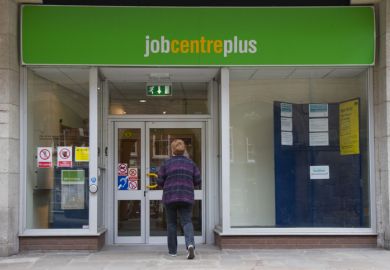Further expansion of higher education participation could erode the graduate earnings premium even though growth of the sector to date has not had this effect, an influential thinktank has warned.
The Institute for Fiscal Studies says that the gap in earnings between graduates and people who left education after school has remained largely stable at about 35 per cent for 25- to 29-year-olds over the past two decades, despite significant increases in university attendance over that period. Forty-one per cent of UK residents in that age range held degrees in 2015, compared with only 13 per cent in 1993.
But researchers Richard Blundell, David Green and Wenchao Jin contend that this is unlikely to continue if there is further significant growth in higher education participation – a scenario that could be brought about by the government’s plan to open the English university sector up to new providers.
In a working paper, the trio argue that an obvious decline in the wage differential between graduates and non-graduates was avoided during the 1990s and 2000s because British companies were transitioning from a centralised to a decentralised decision-making structure over that period – a shift that requires firms to have a growing proportion of highly skilled workers.
This evolution is probably now complete, the IFS says, based on a significant increase in the proportion of graduate employees reporting that they have a lot of influence over their work in the Workplace Employment Relations Survey, and emerging evidence of a small decline in the graduate premium for 30- to 34-year-olds in recent years. Graduates in this age range earned 55 per cent more than non-graduates in the 2010s, compared with 63 per cent in the 2000s.
Therefore, future increases in higher education participation could lead to a more marked narrowing of the gap.
Ms Jin, a PhD student at the IFS, said that the fact that the growth in the number of graduates had not had a significant negative impact on graduates’ relative wages to date was “remarkable”.
“Our research suggests the increasing supply of graduates induced firms to decentralise more decision-making and create more graduate jobs,” she said.
“As most firms have now made such a change, we believe future increases in graduate numbers could reduce the graduate wage premium in the future.”
Register to continue
Why register?
- Registration is free and only takes a moment
- Once registered, you can read 3 articles a month
- Sign up for our newsletter
Subscribe
Or subscribe for unlimited access to:
- Unlimited access to news, views, insights & reviews
- Digital editions
- Digital access to THE’s university and college rankings analysis
Already registered or a current subscriber? Login








